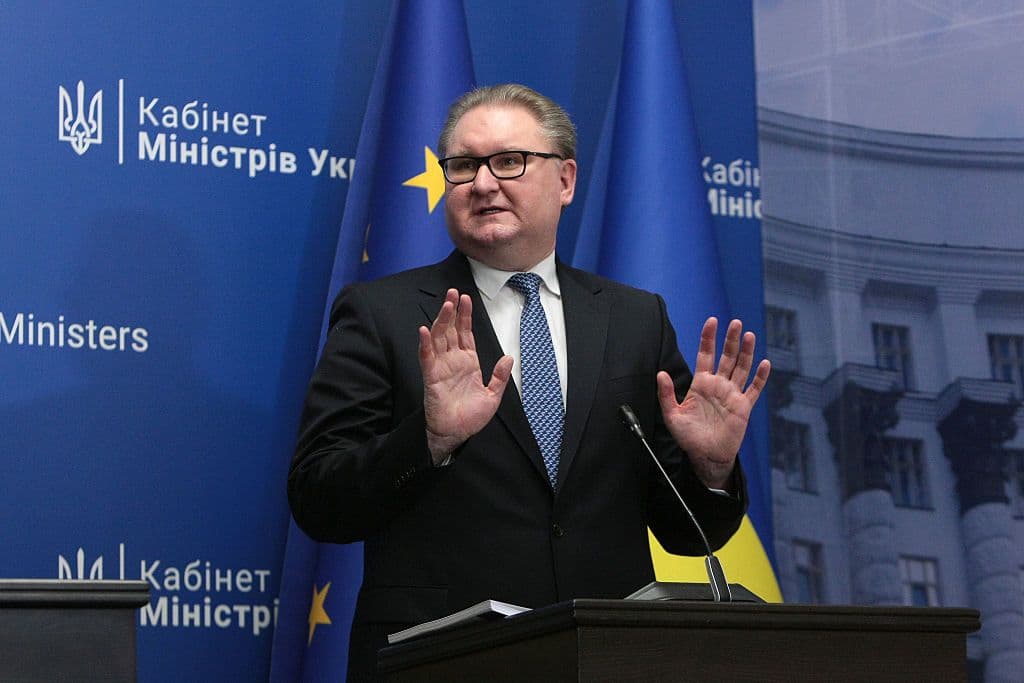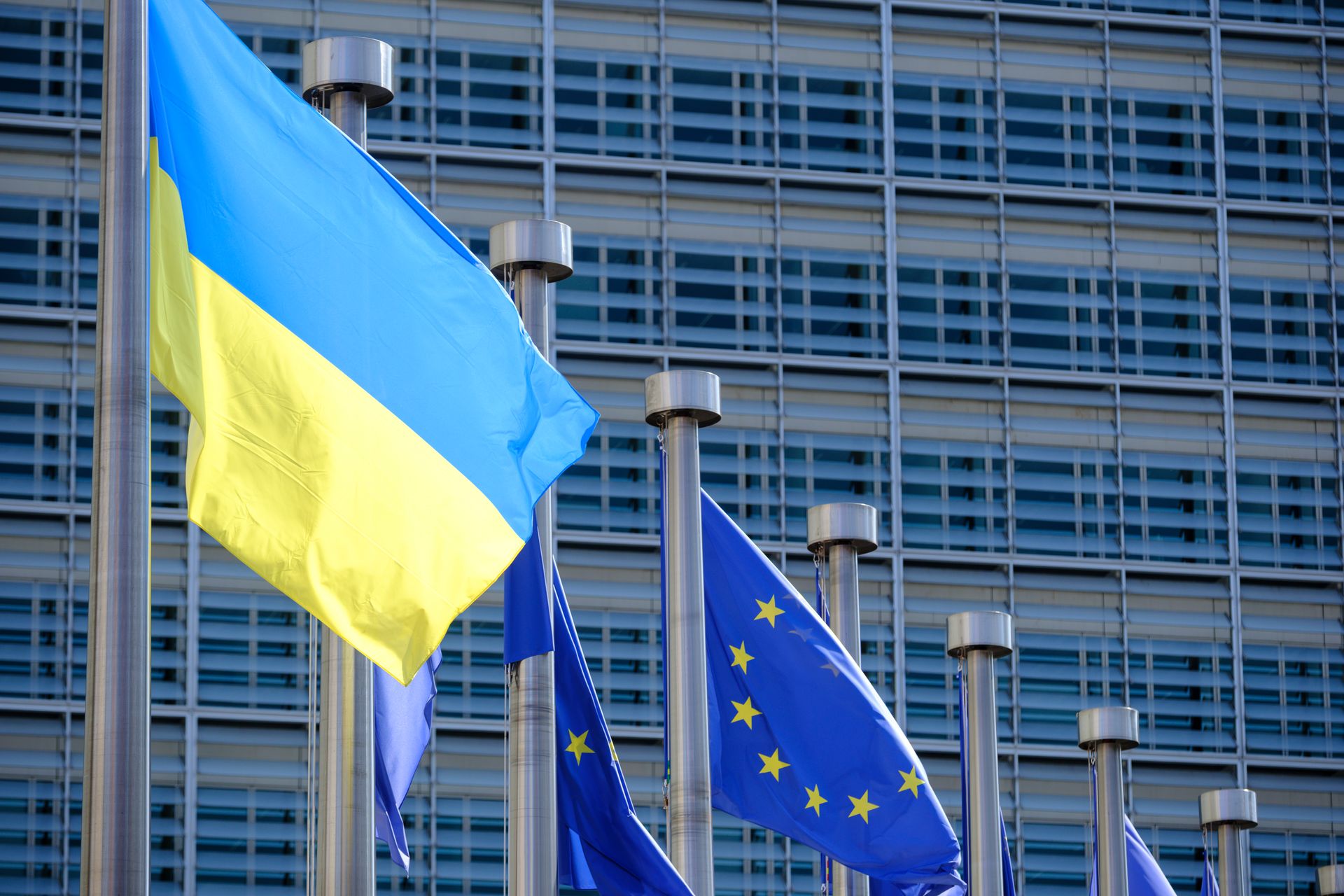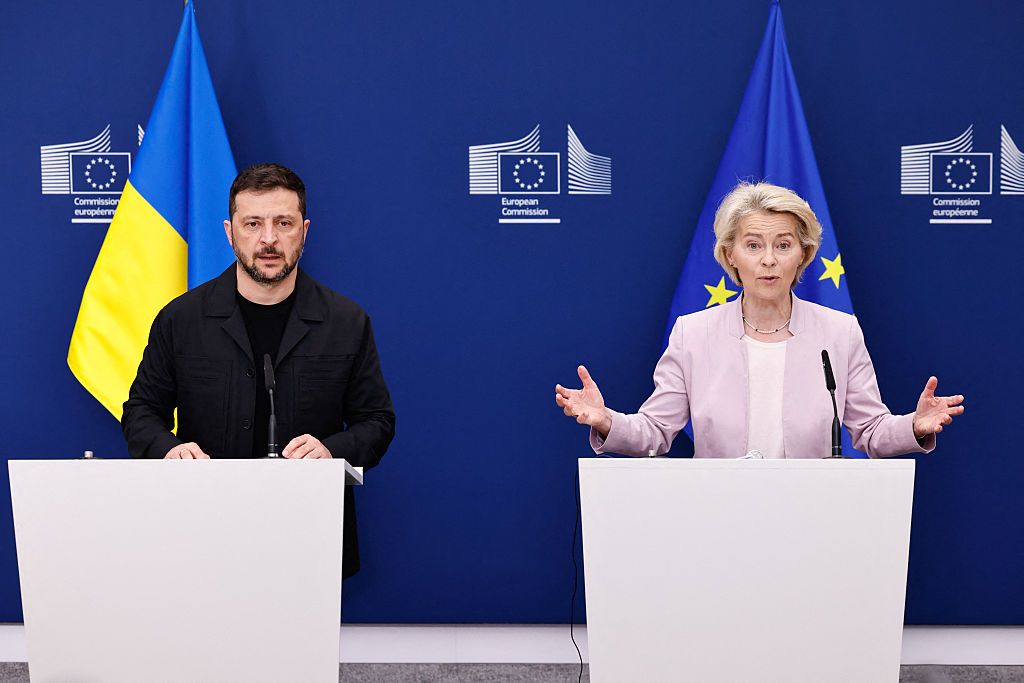Ukraine's deputy PM on EU membership by 2028, Russian assets loan

Gathering journalists in a picturesque coworking space in downtown Kyiv, Deputy Prime Minister Taras Kachka had two things to talk about — Ukraine's EU accession roadblocked by Hungary, and the Russian frozen assets that Kyiv hopes will cover its staggering budgetary deficit.
Results in both remain up in the air.
"I'm more than confident there won't be a hole in the 2026-2027 budget," said Kachka, who leads Ukraine's Euro-Atlantic integration, referring to the macro-financial problems Ukraine is currently facing.
Around 40% of Ukraine's roughly $98 billion budget is covered by foreign support. Looking into 2026, Kyiv remains short of around $19 billion in partner financing to keep the country's books in order.
Kyiv is banking on the "reparations loan," a proposed 140-billion-euro (about $160 billion) loan for Ukraine funded by cash balances associated with Russian sovereign assets, most of which are held by the Belgium-based company Euroclear, to cover its needs for the upcoming years.
The Belgian government has requested other EU members to share any potential risks associated with a reparations loan for Ukraine funded by frozen Russian assets, with no decision yet made.
Belgium and a few other member states are still hesitant to greenlight the scheme.
"There are two scenarios," Kachka said. Either there will be an agreement on the issue by the EU Council meeting set for Dec. 19, or member states will be presented with a few options they would need to choose from.
"We view the reparations loan as a timing question, rather than a question of substance," Yuriy Butsa, Ukraine's government commissioner for public debt management, told the Kyiv Independent earlier on Nov. 4.
"We believe this process will be finalized. If the funds are available for us early in quarter two of 2026, then liquidity-wise we are comfortable," he said.
When asked what would happen if there is no agreement, the deputy prime minister said that existing international macro-financial schemes, such as bilateral or multilateral financial support, would be used to make sure Kyiv has the funds to remain afloat.
In an earlier article, a Ukrainian official told the Kyiv Independent on the condition of anonymity that European partners had told them "not to worry, or to get involved" and that they would "figure something out," with regard to funding over the next few years.
The European Council meeting mentioned by Kachka is looking to become a crucial one because of another key issue as well — Ukraine's EU accession. Kyiv is waiting to begin formal negotiations to join the union, while Hungarian Prime Minister Viktor Orban is doing everything to make sure that doesn't happen.
Who wins the tug-of-war will be decided at the summit.
"The first option is fantastic, Hungary gives the go-ahead, and we open (accession) clusters," Kachka said when talking about the expectations. "We propose to transport non-Russian oil; this is not a problem," he added on what Ukraine can offer.
Another option is that 26 countries agree to close their eyes to the fact that accession clusters are not opened under standard procedure, and "we launch the negotiation process as if they were."
It will take Ukraine two to three years to complete the accession talks.
"The end of the accession negotiations by 2028 is the framing of the (European) Commission. They consider it to be realistic. The only problem is the political position of Hungary," Kachka said.
Whether the clusters — six batches of laws and norms that need to be implemented by a country before it can join the union — will be opened or not, Ukraine hopes the process of adopting the required bills and regulations won't be slowed down by politics.
When asked what would be the hardest chapters to implement on Ukraine's way to the EU, Kachka pointed out three — environment, transport, particularly railway reform, and agriculture.
But the deputy prime minister remained confident. It's all doable if there is political will, both from Kyiv and EU member states, he said.












